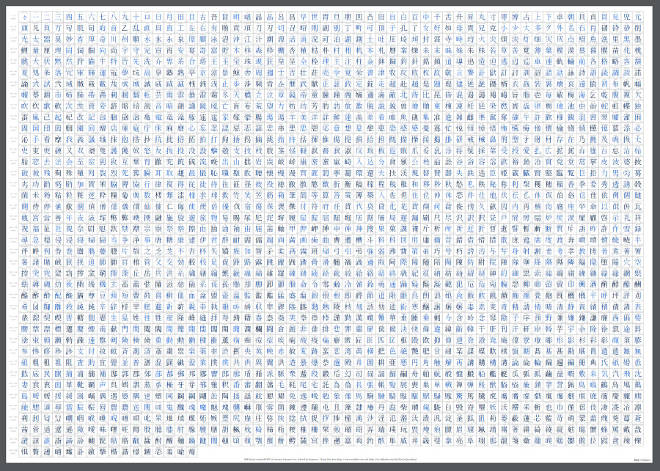This weekend, I started building a Python script to make a poster using the 2200 kanji included in jōyō kanji list as well as the extra kanji covered in [cached]WaniKani.
I'm still experimenting with different ways of ordering and coloring the kanji; for now I've ordered them according to how they appear in Heisig's Remembering the Kanji, and colored them by the log of their frequency in some texts I had.
You can find an example pdf in my github project.
